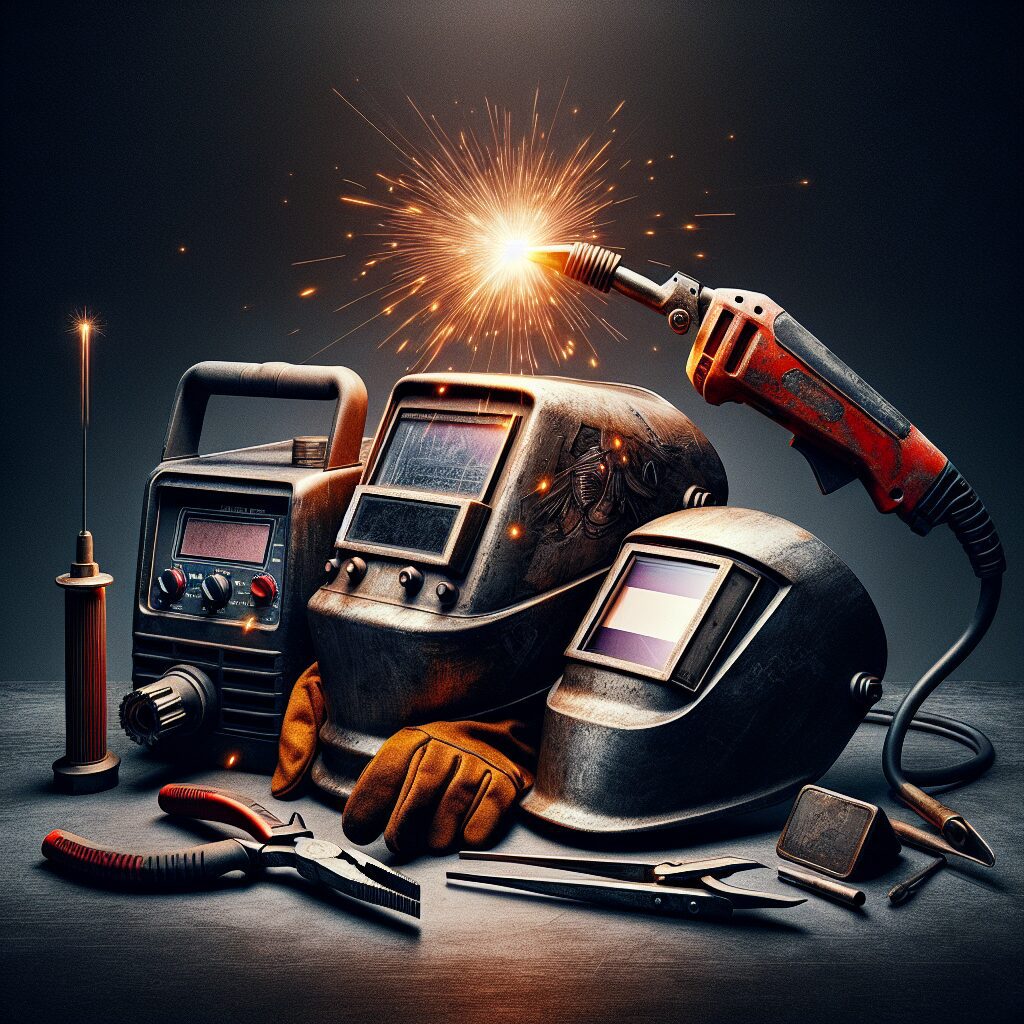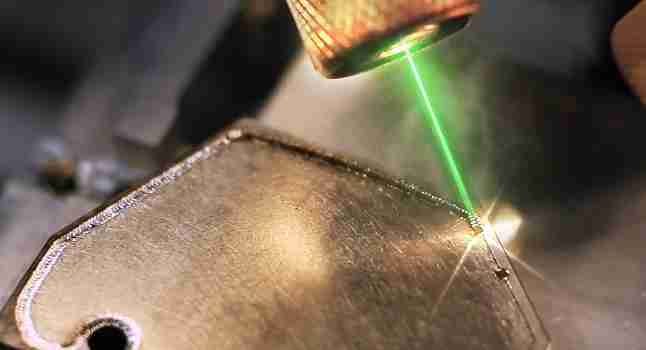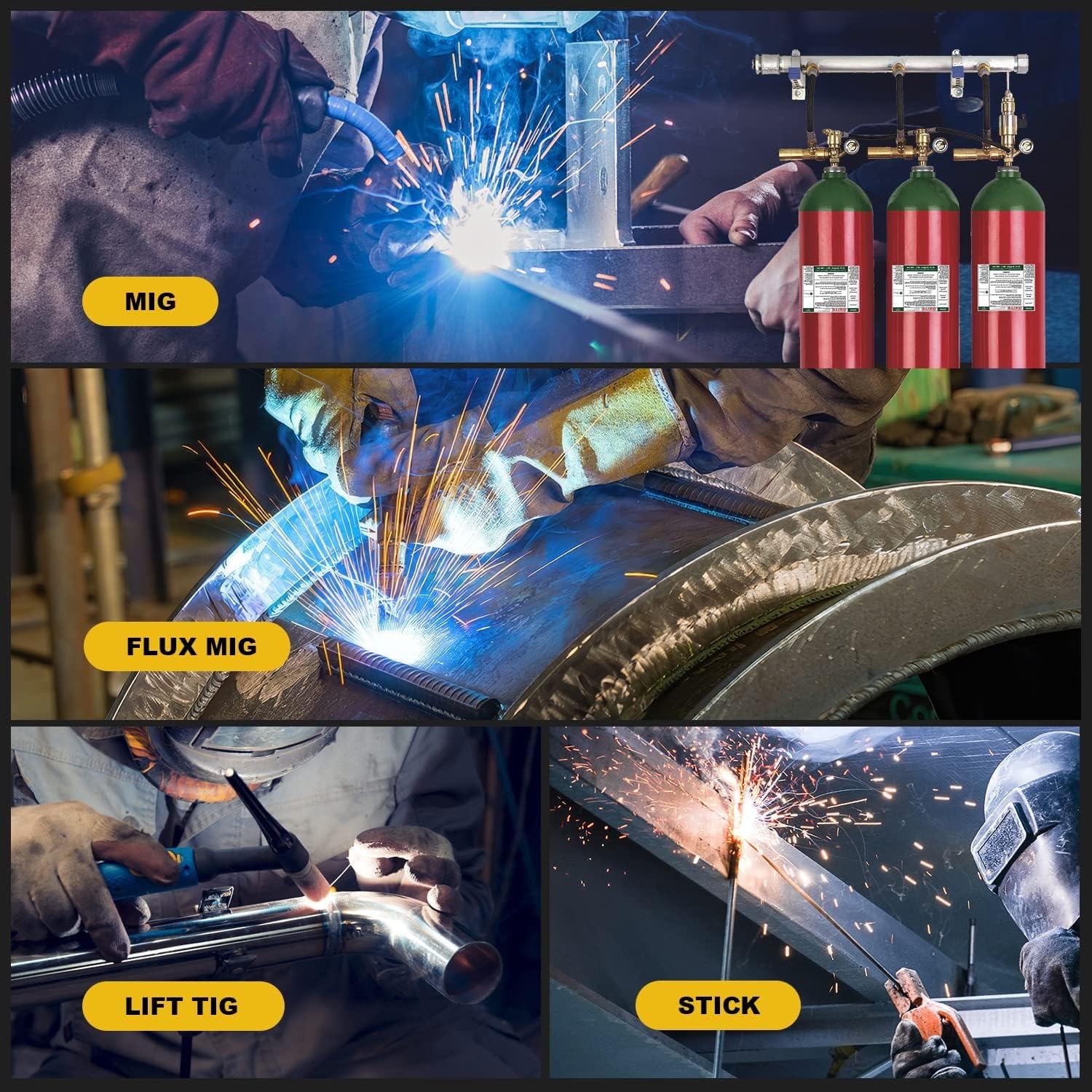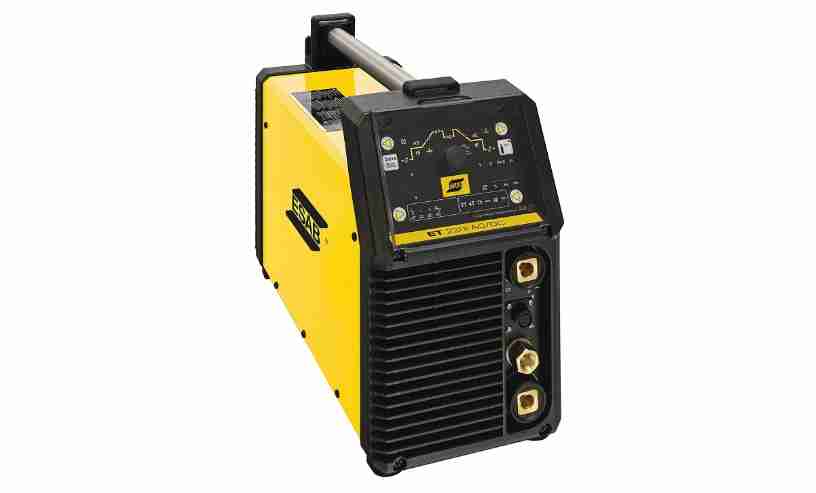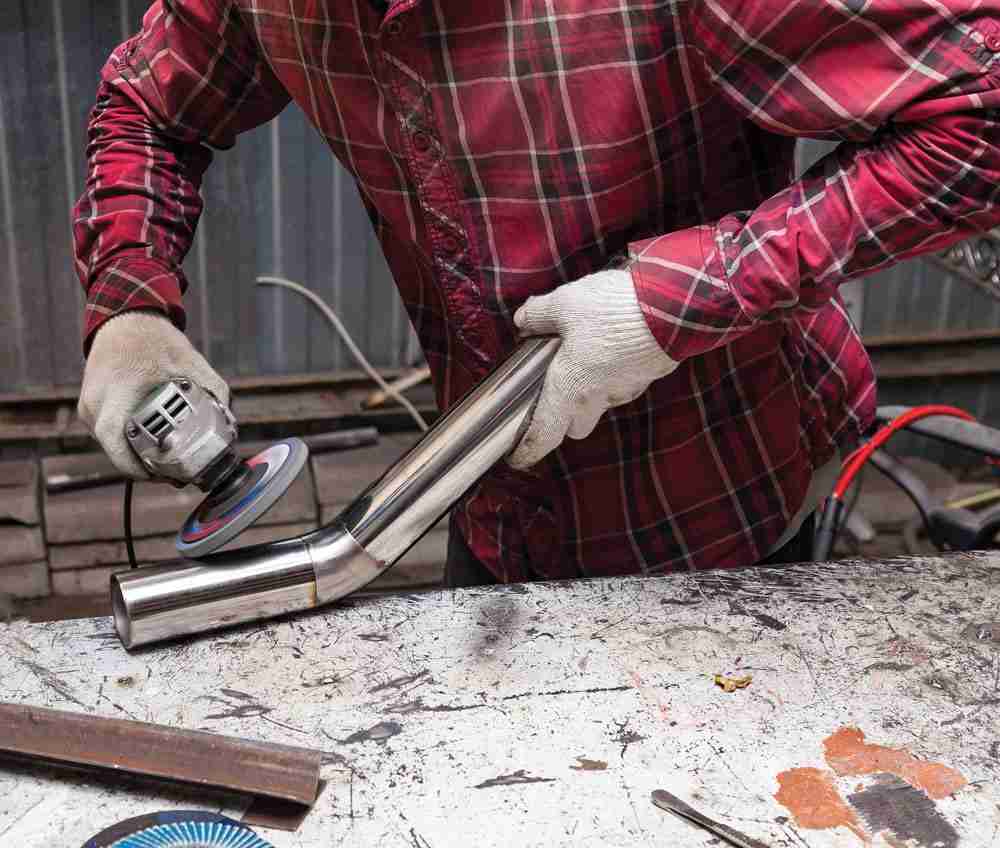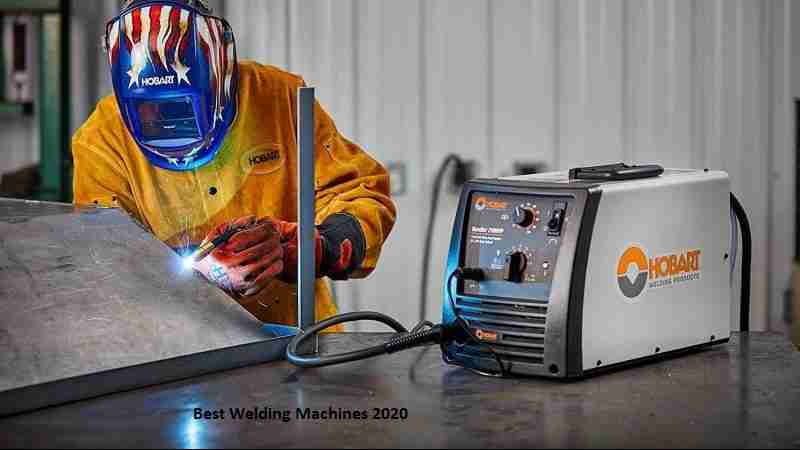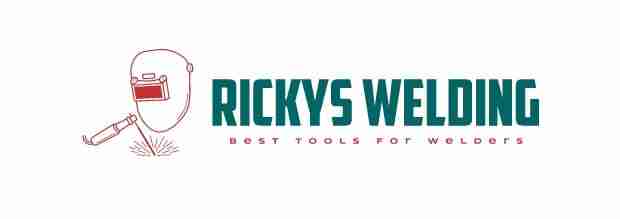If you’re in the market for a used welding machine, it’s important to know what to look for to ensure you’re getting a reliable and efficient tool. From the condition of the machine to its specifications and accessories, there are several factors to consider before making your purchase. By paying attention to these key elements, you can confidently find a used welding machine that meets your needs and stands the test of time.
Quality
When buying a used welding machine, one of the most important factors to consider is the quality of the machine. Inspecting the physical condition of the machine is crucial. Look for any signs of damage, such as dents, rust, or worn-out parts. A machine that is in good physical condition is more likely to perform well and last for a longer time.
In addition to the physical condition, it is also important to check the brand reputation of the welding machine. Some brands are known for producing high-quality and reliable machines, while others may have a reputation for being less reliable. Doing some research on the brand and reading reviews from other users can provide valuable insights into the overall quality of the machine.
Another factor to consider is the age of the machine. While age alone does not determine the quality, it can give you an idea of how long the machine has been used and how much wear and tear it may have undergone. A newer machine may have fewer issues and may be more technologically advanced, but an older machine that has been well-maintained may still be a good option.
Usage
Understanding the previous usage of the welding machine is essential when making a buying decision. Determine how the machine was used in its previous life. Was it used for heavy-duty industrial welding or lighter home projects? Knowing the previous usage will give you an idea of the machine’s overall condition and how it has been maintained.
Check the welding hours of the machine. Just as a car has an odometer to indicate its mileage, welding machines often have an hour meter that shows how many hours the machine has been in operation. The higher the welding hours, the more wear and tear the machine may have undergone. However, it is important to note that the overall condition of the machine is more important than just the welding hours.
Assess the type of welding that was performed using the machine. Different welding techniques, such as MIG, TIG, or stick welding, put different strains on the machine. It is important to match the welding machine’s capabilities with your specific needs. If the machine has been used for the same type of welding that you intend to do, it may be a good fit.
Performance
Testing the machine’s functionality is crucial before finalizing a purchase. Always ask the seller if you can test the machine or if they can demonstrate its functionality. This will allow you to see if all the features and controls are working properly. Pay attention to any unusual noises or vibrations that can indicate underlying issues.
Check for leaks in the welding machine. Leaks can be a sign of damaged or worn-out seals, hoses, or fittings. Leaking machines not only affect the quality of the weld but can also be hazardous. Inspect the machine for any signs of leaks and ensure they are addressed before purchasing.
Another vital aspect to evaluate is the power output of the machine. Different welding applications require different power levels. Verify that the welding machine you are considering can meet your specific power requirements. This information is typically provided by the manufacturer and can be found in the machine’s specifications.
Maintenance
Reviewing the maintenance records of the welding machine can give you insights into how well it has been cared for. Look for records of regular maintenance and servicing. Machines that have been regularly maintained are more likely to be in better condition and have fewer issues.
Inspect the cooling system of the welding machine. Overheating can cause significant damage to the machine’s internal components. Check that the cooling system, such as fans or heat sinks, are clean and functioning properly. Overheating can be a common issue with welding machines, so it is important to ensure that the machine has been properly cooled during its previous use.
Check for any signs of neglect. Machines that have been neglected may have more issues and require additional repairs. Look for signs such as excessive dirt or grime, loose or missing parts, or evidence of previous repairs that were not done properly. These signs can indicate that the machine may not have been well-maintained.
Accessories
It is important to ensure that the necessary accessories are available and in good condition when buying a used welding machine. Check if the machine comes with essential accessories such as welding torches, ground clamps, or regulators. Verify that these accessories are included and are not damaged or excessively worn.
Consider the compatibility of the accessories with your specific needs. Different welding techniques or applications may require specific types of accessories. Make sure that the accessories that come with the machine are suitable for the type of welding you intend to do. If not, you may need to purchase additional accessories separately.
Inspect the condition of cables and leads. Damaged or frayed cables can pose safety risks and may impact the machine’s performance. Check that the cables are in good condition, without any visible damage. It is also important to ensure that the cables are long enough for your needs, as shorter cables may limit your mobility during welding.
Price
Researching the market value of used welding machines is essential to ensure you are paying a fair price. Look for similar models and compare their prices in the used market. This will give you an idea of the average price range for the type of machine you are considering. Keep in mind that prices may vary depending on factors such as brand reputation, condition, and age of the machine.
Consider the condition of the welding machine when evaluating the price. A machine in better condition may be worth a higher price, while a machine with more issues or wear may be worth less. Take into account all the factors discussed earlier, such as physical condition, usage, and maintenance records, when determining if the asking price is fair.
Negotiating for a fair price is also an option when buying a used welding machine. If you believe that the asking price is too high or if you have identified any issues with the machine, you can negotiate with the seller. Be prepared with the information you have gathered about the machine’s condition and market value to support your negotiation.
Warranty
When buying a used welding machine, it is important to inquire about any remaining warranty. Some manufacturers offer warranties that can be transferred to a new owner. Having a warranty can provide peace of mind, as it can cover repairs or replacements if any issues arise.
Understand the coverage and limitations of the warranty. Read through the warranty documentation or ask the seller for more information. Pay attention to factors such as the duration of the warranty, what is covered, and any conditions that may void the warranty. Understanding the warranty terms will help you make an informed decision about the machine.
Evaluate the reliability of the seller for honoring the warranty. Research the reputation of the seller or dealer and read reviews from other customers. A reliable seller will be more likely to honor the warranty and provide the necessary support if any issues arise.
Safety
Safety should always be a priority when buying any type of machinery, including a used welding machine. Check for safety features that are essential for safe welding operations. Features such as thermal overload protection, voltage control, or emergency stop buttons can help prevent accidents and protect both the operator and the machine.
Ensure that the welding machine complies with safety standards. Different regions or countries may have specific safety standards that welding machines must meet. Verify that the machine you are considering complies with these standards to ensure its safety and legal compliance.
Inspect the machine for any safety concerns. Look for any damaged or loose parts that could pose safety risks. Check for proper grounding and ensure that all electrical connections are secure. Safety should never be compromised, so it is important to thoroughly inspect the machine for any potential hazards.
Portability
Consider the weight and size of the welding machine when making a buying decision. Depending on your needs, a lighter and more compact machine may be more suitable. However, keep in mind that smaller machines may have limitations in terms of power output or capabilities. Assess your transportation needs and determine if the size and weight of the machine will be manageable for you.
Evaluate the availability of handles or wheels for easier portability. Some welding machines are equipped with handles or wheels, making them easier to move around. If portability is important to you, make sure to check if the machine has these features. Handles or wheels can make a significant difference in the convenience of transporting the machine to different work sites.
Availability of Support
Before making a final decision, it is important to check for the availability of spare parts for the welding machine. Over time, certain components may need to be replaced, and having access to spare parts can ensure that the machine remains operational. Research if spare parts for the specific model are readily available in the market.
Research the availability of technical support for the welding machine. In case you encounter any issues or require assistance, it is valuable to have access to technical support. Check if the manufacturer or authorized service centers provide technical support for the specific model you are considering.
Consider the reputation of the manufacturer for customer service. A manufacturer with a good reputation for customer service is more likely to provide timely assistance and support if any problems arise. Reading reviews or seeking recommendations from other users can give you insights into the manufacturer’s customer service quality.
In conclusion, buying a used welding machine requires careful consideration of various factors. By inspecting the physical condition, checking the brand reputation, and considering the age of the machine, you can assess its overall quality. Evaluating the previous usage, checking the welding hours, and assessing the type of welding can help determine if the machine meets your specific needs. Testing the machine’s functionality, checking for leaks, and evaluating the power output can give you an idea of its performance. Reviewing the maintenance records, inspecting the cooling system, and checking for signs of neglect can provide insights into the machine’s maintenance history. Ensuring the availability and condition of accessories, verifying compatibility, and checking the condition of cables and leads are essential for a smooth welding experience. Researching the market value, considering the machine’s condition, and negotiating for a fair price can help make the buying process more cost-effective. Inquiring about any remaining warranty, understanding coverage and limitations, and evaluating the reliability of the seller are crucial for peace of mind. Checking for safety features, ensuring compliance with safety standards, and inspecting for any safety concerns prioritize the well-being of the operator. Assessing the weight and size of the machine, considering transportation needs, and evaluating the availability of handles or wheels can impact the machine’s portability. Finally, checking for the availability of spare parts, researching the availability of technical support, and considering the reputation of the manufacturer for customer service ensure that you have the necessary support throughout the machine’s lifespan. By carefully evaluating all these factors, you can make an informed decision and find a used welding machine that meets your requirements.



